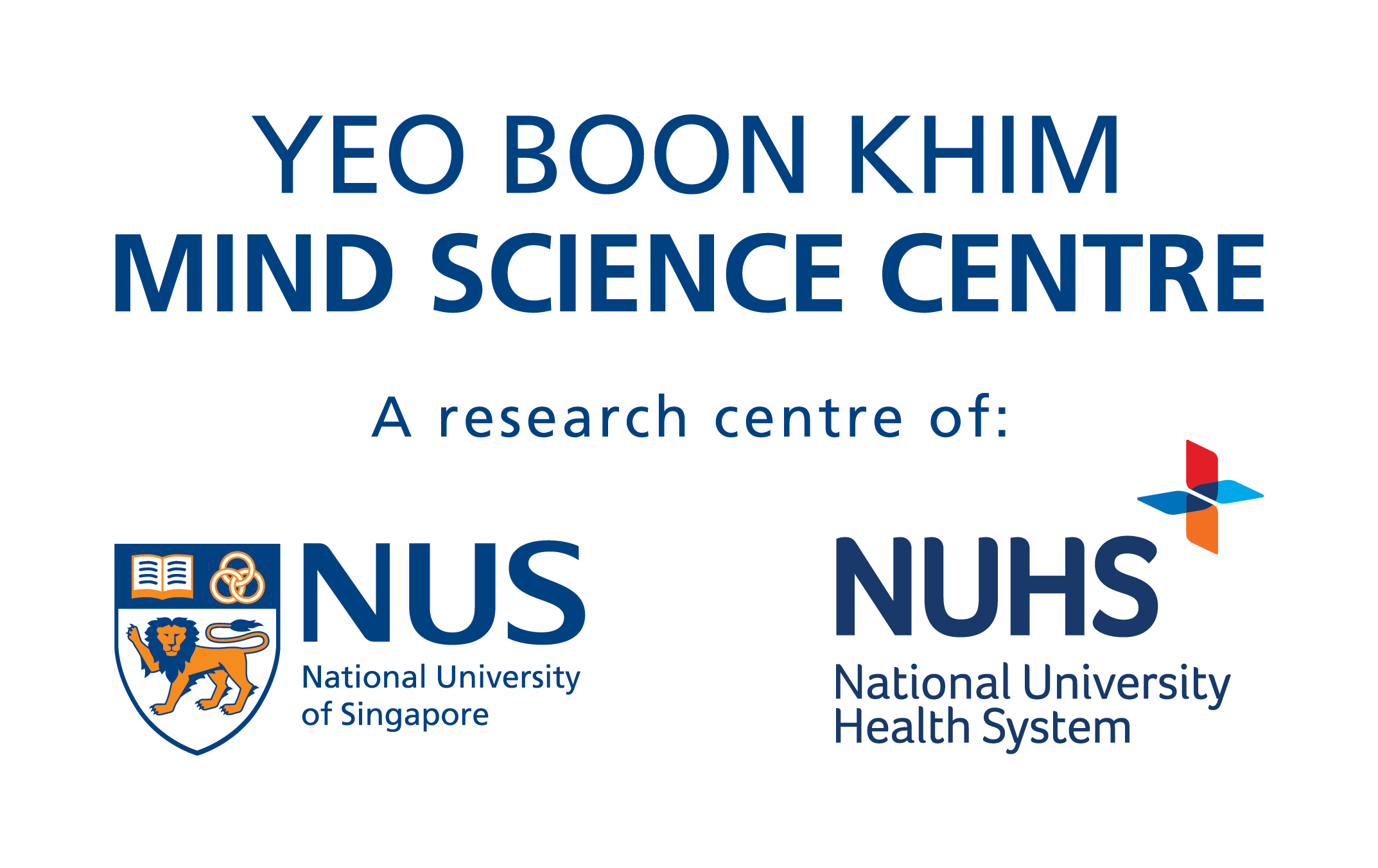AN INTERN’S VENTURE TO THE ‘ARTS, MINDFULNESS & THE AGEING BRAIN’ CURATION
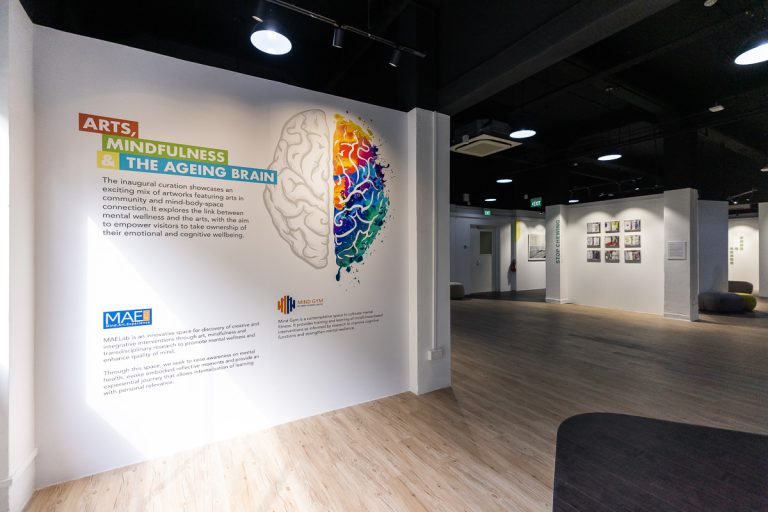
Art or Science?
The two ways of perceiving the world converged at Mind Art Experiential Lab (MAELab). Aesthetes, mental health advocates and those who simply wish to learn more about mental wellness will be thrilled to learn that MAELab is a gallery that offers a fusion of psychological research and the arts.
As a social science student, this interdisciplinary approach caught my interest and I had the chance to be one of the last few visitors to the physical exhibition. So, this was my experience.
A Perfect Mix of Information & Experiential Activities
Upon entering the exhibition, the docent led me to several wall infographics, through which I learnt that the first section of exhibition is derived from the 10-year Jurong Ageing Study. The community-based study on dementia and depression in seniors found that art therapy is helpful for improving cognitive functions.
This decade-long study also paved the way for Mind Science Centre’s Age Well Everyday (AWE) programme, which aims to delay the onset of dementia and promote active ageing through a series of evidence-based activities such as choral singing.
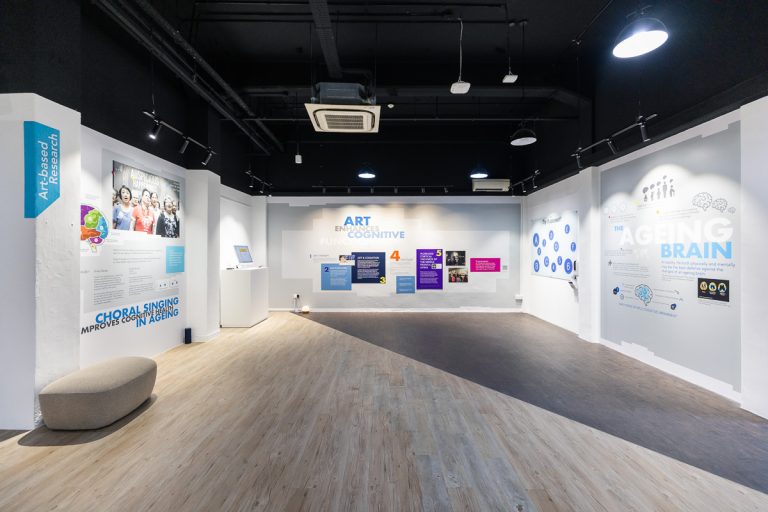
I was pleasantly surprised that experiential games awaited me. I had anticipated a passive tour, as is the case for typical art galleries.
The first game required participants to connect the circles based on the given rule as fast as possible. This game was adopted from the Self-Administered Gerocognitive Exam (SAGE), which the full battery of test was designed to detect early signs of cognitive impairment. Safe to say, my timing was within the normal range.
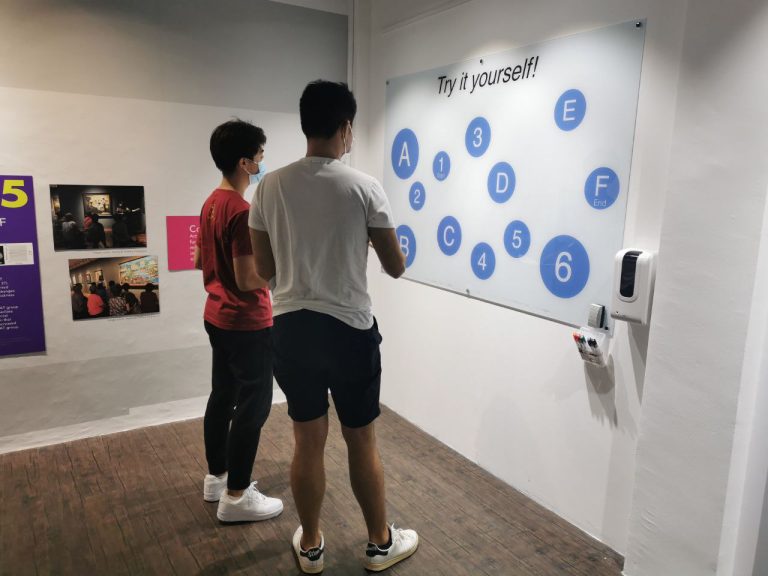
Thereafter, I was introduced to the concept of digital therapeutics. I found the concept intriguing as I was familiar only with the ills of gaming but had never heard of its potential role in therapy.
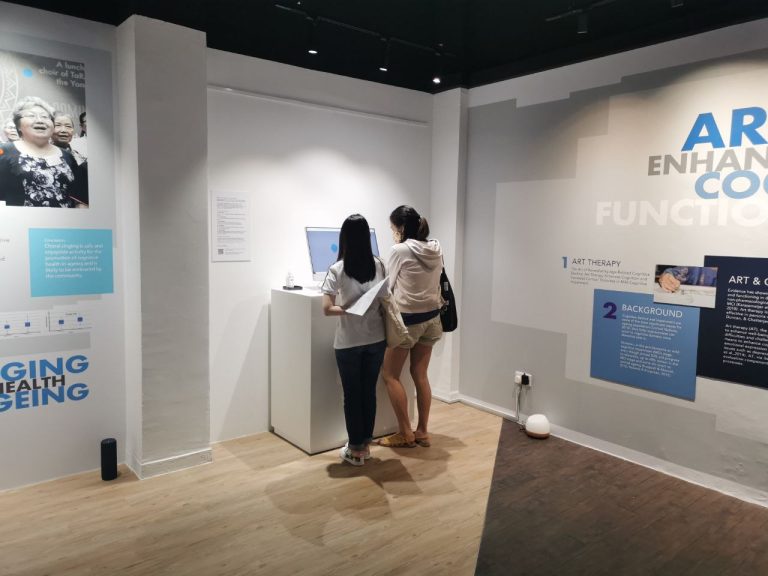
As someone who was never much concerned about the subject of ageing, these games reinforced one fact for me – No matter our age, we can take active steps towards healthy ageing, starting from now!
Community Arts
The community arts wall featured artworks created by persons living with dementia or mild cognitive impairments. I found these pieces extremely expressive – each frame captured the personality behind the artwork and characterized its artist beyond their illness. If I had to pick a favourite piece, it would be S.Y. Cheong’s “How you look at it?”. Her work encourages alternative views of ageing through its abstract nature – while ageing may be inevitable, it is up to us to embrace the experience.
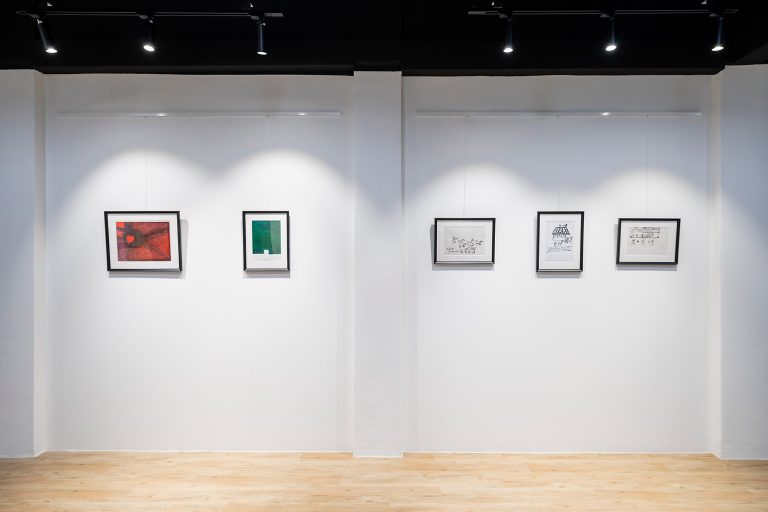
Artist Reflections
Sia Joo Hiang’s “Stop Chewing” is another piece of artwork that I particularly enjoyed. The mixed medium picture book is constructed with ordinary materials like highlighters, coloured pencils and even post-it notes, setting it apart from the norm. Instead, it is a relatable visual documentation of caregivers’ unarticulated frustrations. The journal depicted a meaningful story, which raised a key question for us to ponder: What about the caregiver’s well-being?
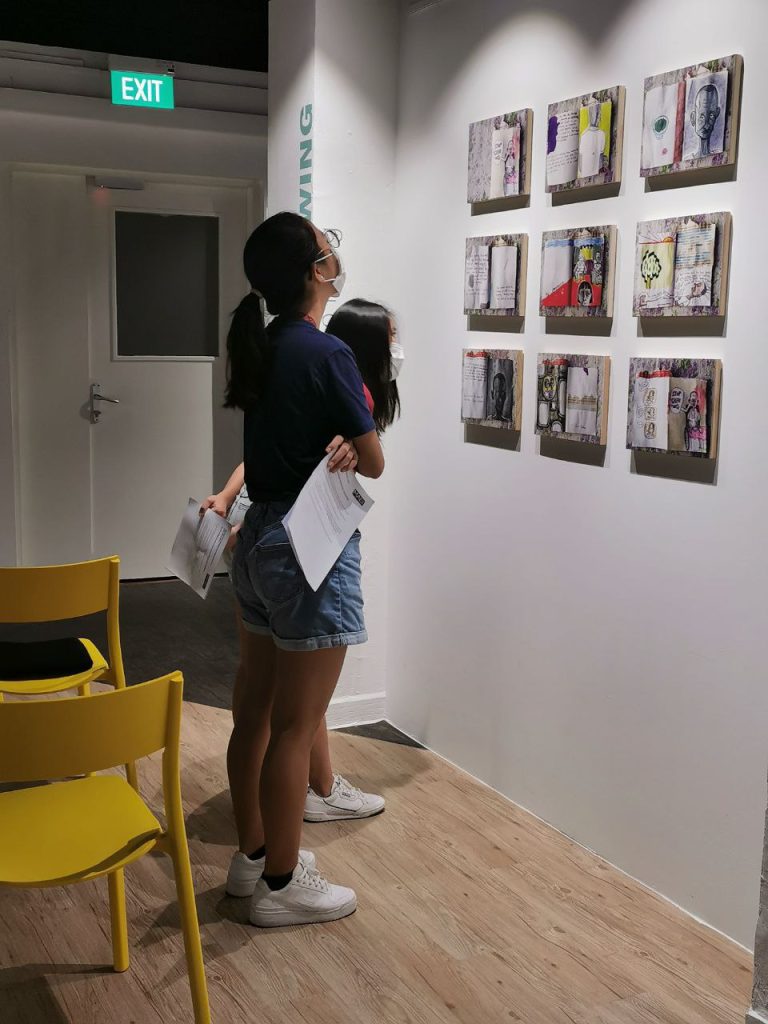
Tea Drinking
As I walked into the tea corner, I was welcomed by a waft of earthy tea aroma. I later learned that it was the scent of a Fujian black tea, which is helpful for alleviating fatigue and stress. While learning how habitual tea consumption can improve cognitive function, I made a mental note to dust off my Chinese tea ware set at home and go through the steps of tea-making mindfully the next time I make a cuppa.
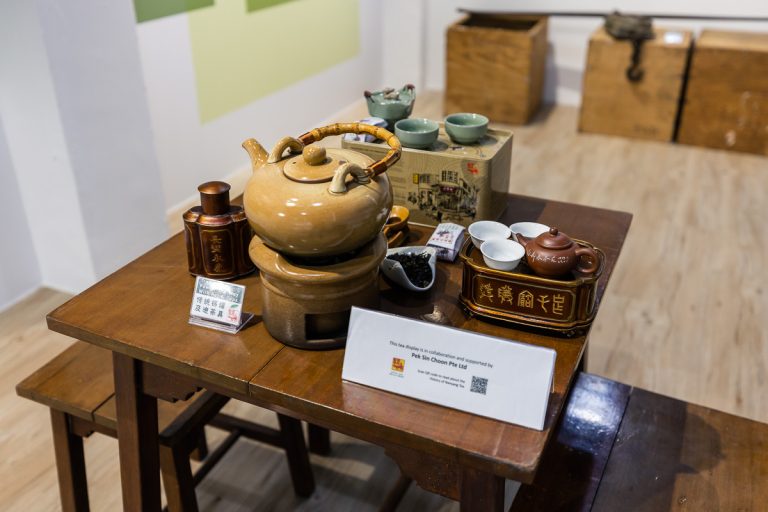
The Embodied Space
The mind-body-space connection was the focus of Anja Humljan’s “The Urban Yoga Alexandra Hospital” photo series. Her work highlighted the robustness of the human senses, urging us to engage with our environment amidst the monotony of the concrete jungle.
On my way out, I took care to immerse myself in my surroundings. My journey home was no longer a blur, but a conscious, mindful one.
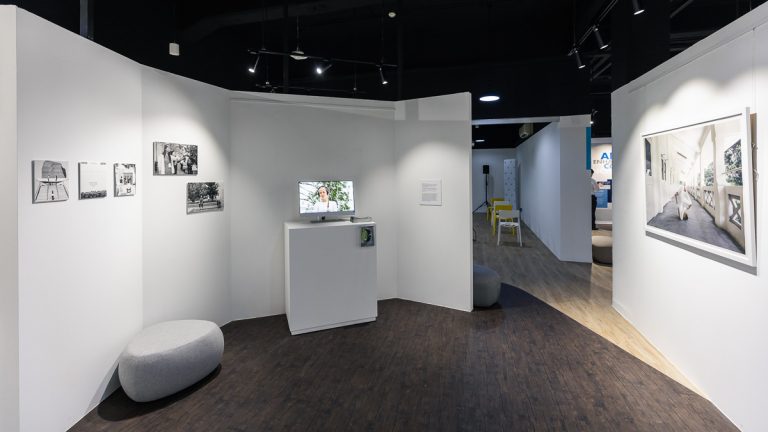
Closing Thoughts
The mind-body-space connection was the focus of Anja Humljan’s “The Urban Yoga Alexandra Hospital” photo series. Her work highlighted the robustness of the human senses, urging us to engage with our environment amidst the monotony of the concrete jungle.
On my way out, I took care to immerse myself in my surroundings. My journey home was no longer a blur, but a conscious, mindful one.
A new curation titled ‘Teens & Kin’ took over the exhibition space of MAELab now! Find out more HERE.
‘Art and science are more closely related than you think it is, and the proven role of arts in psychology testifies to the interplay of both realms.’
— Han Xiyi, June 2022
Mind Art Experiential Lab (MAELab)
MAELab is an innovative space for discovery of creative and integrative interventions through art, mindfulness and transdisciplinary research to promote mental wellness and enhance quality of mind. Through this space, we seek to raise awareness on mental health, evoke embodied reflective moments and provide an experiential journey that allows internalization of learning with personal relevance.
A new curation titled ‘Teens & Kin’ has been unveiled on 1 July!
This second exhibition puts the spotlight on youth mental health. We are excited to see how this uniquely themed curation can initiate conversations about intergenerational bonding and enhance the resilience of our youth.
